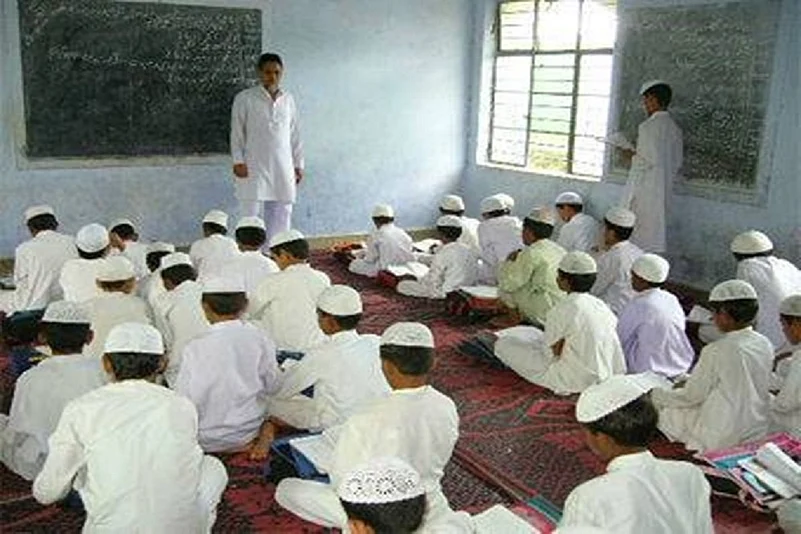Days after the Supreme Court declared Triple Talaq unconstitutional, madrassas of Uttar Pradesh are planning to teach the "correct way of divorce".
The national general secretary of Jamat Raza-e-Mustafa, Maulana Shahbudin Razvi, has said that a meeting has been conducted with clerics associated with madrassas to inform the community through students on correct ways of giving talaq, reported The Times of India.
Razvi added that the aim is to educate couples to follow sharia in matters of separation and reject instant talaq. He also said that they are planning to urge Muslim women to refrain from taking their personal matters to courts or police, the report adds.
Mufti Muddasar Khan, who runs a madrassa in Agra, told the newsapaper that they have a full chapter on the correct way of going through a divorce.
"At present, there are over 200 madrassas, including non-recognised ones, in Aligarh and about 150 in Agra. However, students in lower classes are not taught practices of talaq, nikah or halala," Khan said to TOI.
On August 22, in a landmark verdict, the Supreme Court by a majority of 3:2 ruled that the practice of divorce through triple talaq among Muslims is "void", "illegal" and "unconstitutional"
The apex court held that the triple talaq is against the basic tenets of Quran.
While Chief Justice J S Khehar and Justice S Abdul Nazeer were in favour of putting on hold for six months the practice of triple talaq, asking the government to come out with a law in this regard, Justices Kurian Joseph, R F Nariman and U U Lalit held it as violative of the Constitution.
The majority verdict said any practice including triple talaq which is against the tenets of Quran in unacceptable.
The three judges also said the practice of divorce through triple talaq is manifestly arbitrary and violative of the Constitution and must be struck down.
The minority verdict by CJI Khehar and Justice Nazeer, which favoured to keep on hold the practice of triple talaq for six months, asked the political parties to set aside their differences and help the Centre in coming out with a legislation
The judges in the minority verdict said that if the Centre does not bring a law within six months, then its injunction on triple talaq will continue
CJI Khehar and Justice Nazeer in their minority verdict expressed hope that the Centre's legislation will take into account concerns of Muslim bodies and the Sharia law.
(With PTI inputs)


























